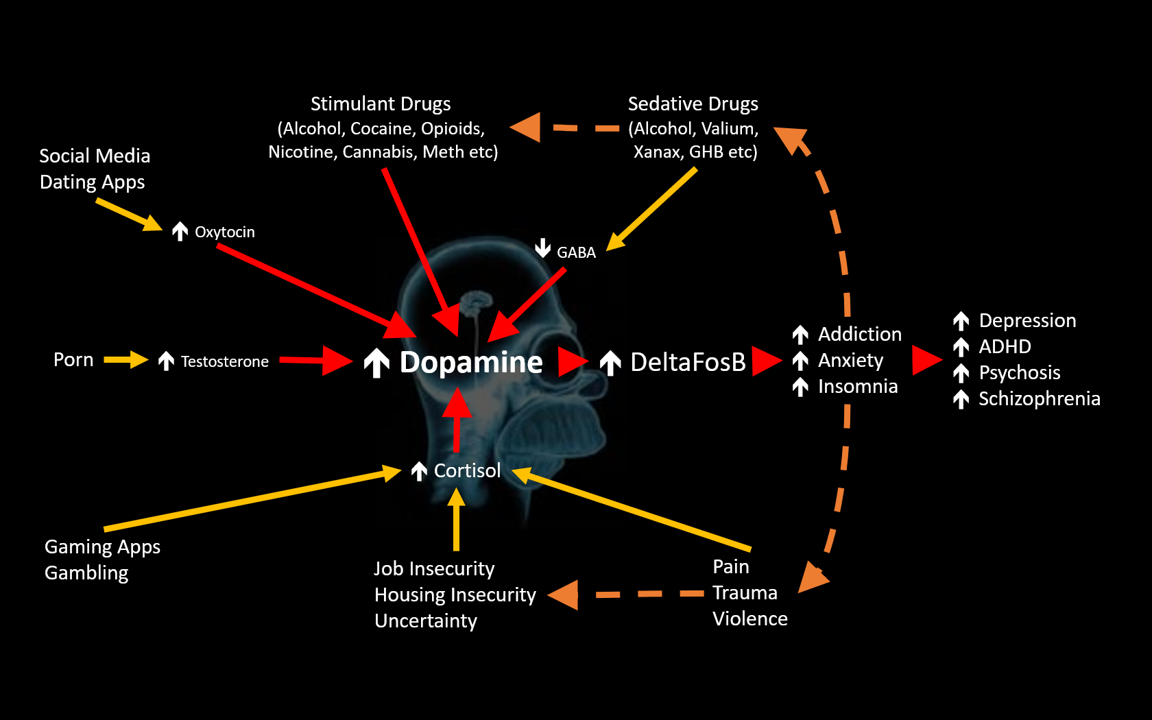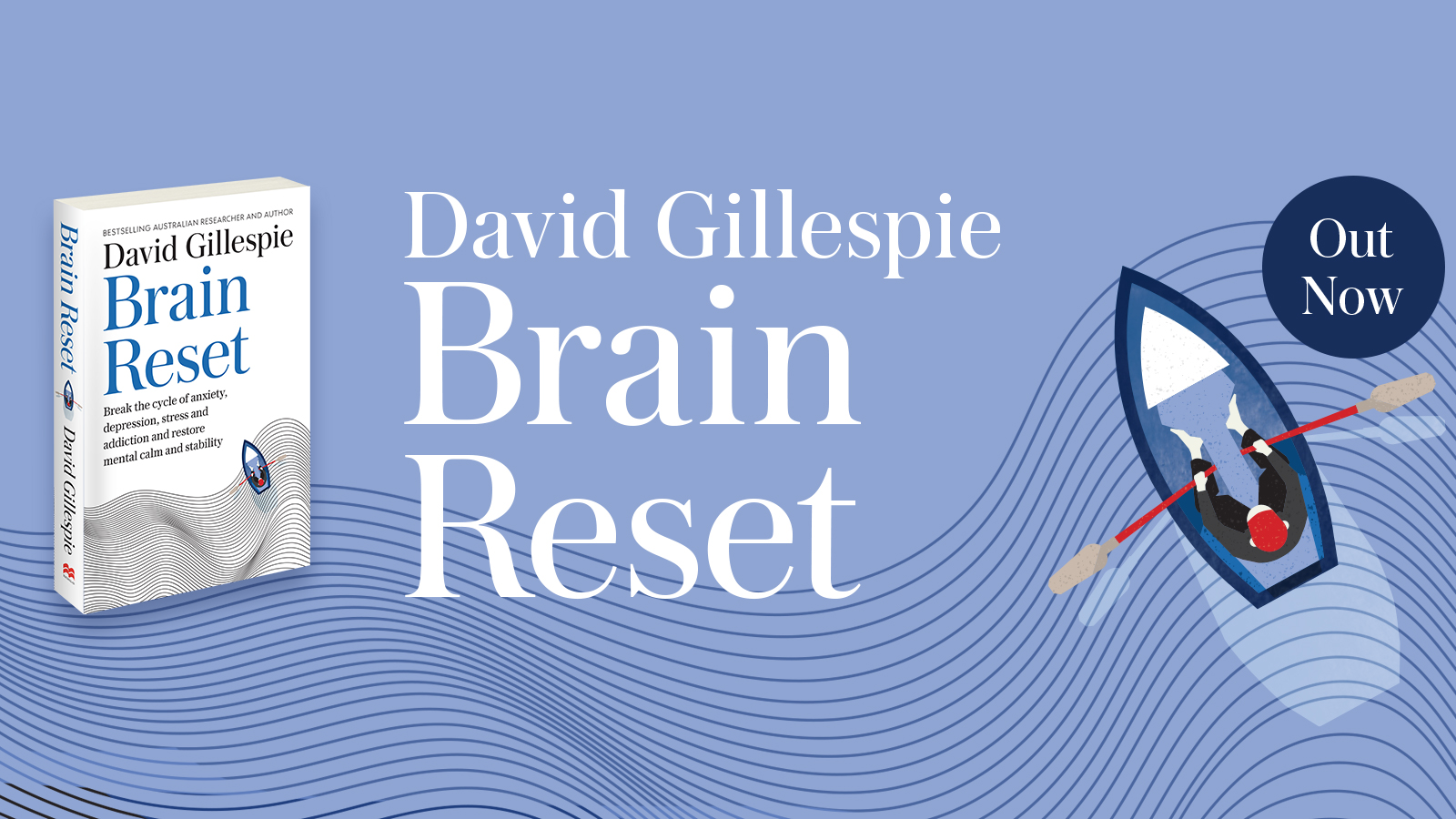
Stimulant drugs like opioids, cocaine, meth and alcohol are devastatingly effective pathways to addiction, but there are much more subtle everyday routes to the same destination, and they all start with overstimulation of dopamine.
Dopamine is a neurochemical that motivates us to take action and focuses our attention. It makes us run towards pleasure and away from danger. If, however we overstimulate dopamine our brain becomes semi-permanently rewired into a significantly more fragile state. In that state we overestimate both the probability of receiving rewards and the danger posed by threats.
The rewiring for extreme alertness helps us cope with the high dopamine environment, but it is only meant to be a temporary fix. When we hold ourselves in that overstimulated state for too long we will initially become clinically anxious and then, eventually, depressed.
We can do that by using chemicals that we know stimulate dopamine but many more of us are achieving the same result without consuming any of these.
Social media and dating apps stimulate oxytocin, our socialisation hormone which in turn gives us a hit of dopamine. Porn follows a similar path with the assistance of testosterone. Gambling and danger simulating games like Fortnite get to the same destination by stimulating cortisol, the same hormone released when we are in real-life danger. Chronic uncertainty caused by housing insecurity, job insecurity or, say, COVID has the same effect. As does exposure to trauma, pain or violence.
All these starting points promote overstimulation of dopamine. Because both stress and addiction produce the same state, stress makes us easier to addict and addiction makes us more susceptible to stress. Our brain adapts by decreasing our sensitivity to dopamine by dialling up an epigenetic control called DelatFosB. Unfortunately, that leaves our brain in a fragile state which makes us overestimate rewards (craving more dopamine) and risks (high anxiety about everything). Even worse, any dopamine stimulating behaviour will temporarily provide relief but ultimately make the problem worse. This is why addiction is so hard to break and anxiety is so hard to cure.
In between dopamine hits, the edgy state of our brain biochemistry leads us into low dopamine states we recognise as depression (a lack of motivation) and ADHD (a lack of focus).
It doesn’t matter (to our biochemistry) if the next dopamine hit comes from looking at Facebook, or playing Fortnite, or smoking a ciggy, or inhaling cocaine, or hitting the booze, or being evicted, or stress about COVID, or being a victim of violence, and of course any combination of these.
The affect is the same, the effects are cumulative and left unchecked, over time, will continue to drive the growing epidemic of anxiety, depression, and mental illness.

















Recent Comments